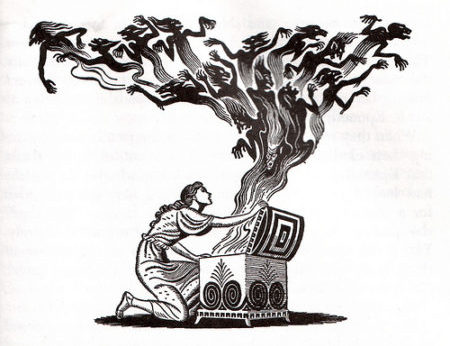Opening the Pandora’s Box
Presidential Military Power, Part 1
Theodore Roosevelt’s first reaction to the killing of Iranian General Soleimani may very well have been grudging admiration of its audacity and the avenging of American blood on his hands. Moreover, TR was an unrepentant advocate of presidential power and believed he could “do anything the nation demanded unless it was specifically prohibited by the Constitution”. Many neoconservatives and some advocates of realism maintain that presidents need such unilateral power in a world where terrorism, cyber-attacks and other low-level threats will be the prevailing warfare of the future.
Nevertheless, even Roosevelt would have had to concede that Article I of the Constitution vests in Congress, not the President, the power to declare war against a sovereign state. Over time, presidents have arrogated more and more power to engage in military action with little or no input from Congress or the public. The Soleimani action shows how unrestrained military action can risk committing the nation to a general shooting war without the constitutional constraints envisioned by the Founding Fathers.
Modern American nationalists who believe in realism and restraint should be horrified at this situation. It limits the input into such a momentous decision to only a narrow elite without the discussion necessary to achieve the broad consensus required to sustain the commitment to victory. The last three decades shows that it also encourages interventions in regions such as the Middle East where we have little direct interest. The fact that America has endured as many shooting wars in those 30 years as it did during the Cold War speaks to how such power can be abused and dissipate American lives and treasure to no conclusive end. Moreover, these interventions have occurred at the expense of the longer-term strategy necessary to deal with more important challenges such as China.
There is no question that American foreign and defense policy will need to be nimble and precise to effectively deal with cyber and drone warfare, as well as other foreign threats that we can hardly imagine now. These twin challenges call for a new statutory framework for authorizing national action, military and otherwise. The old War Powers Resolution adopted in 1973 has proven ineffective at controlling presidential military power and outmoded in managing modern forms of warfare. It should be replaced by a system that requires varying levels of authorization based on the degree of national commitment necessary to successfully respond to the attack or level of threat. The next post will outline the elements of such a statute.


